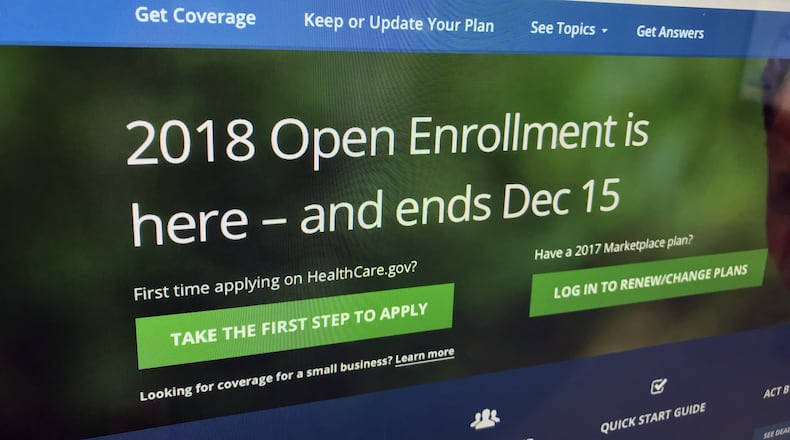In a bittersweet moment of relief for Obamacare customers, prices for next year’s premiums in Georgia are expected to see only modest increases, mostly in the single digits.
It's a marked contrast to the brutal increases of recent years and not what experts expected.
The turmoil from Washington that has driven big rate increases in the past — according to the companies, consultants and ratings agencies — continues. But it appears that in Georgia at least, the companies benefited from raising rates enough last year that this year bigger spikes were not required.
In addition, Blue Cross Blue Shield of Georgia is also restoring some of the coverage it cut last year, returning to parts of metro Atlanta to offer individual plans there again.
Bill Custer, a health economics analyst at Georgia State University, said those are signs that insurers finally understand the Georgia Obamacare market.
“That means that for most of the insurers in most of the markets, the insurance market has stabilized,” Custer said. He noted that the price increases the insurers have proposed this year pretty much track inflation in health care generally.
Blue Cross, for example, the company that insures most of the the state’s rural areas, last year was able to win a stratospheric average increase of 57.7 percent over what it charged in 2017. This year, its average requested increase is just 2.2 percent.
On the other hand, last year Kaiser Permanente held back on increases, and unlike other companies, it did not take advantage of a late-term order by the Trump administration that up ended subsidies and led many insurers to add to their increases.
So this year, Kaiser Permanente’s proposal in Georgia is to increase rates 14.7 percent.
All four companies that offered plans this year on the Georgia exchange market for Obamacare, known as the Affordable Care Act, are aiming to return next year. In addition to Blue Cross and Kaiser Permanente, Alliant proposes to sell plans with an average increase of 5.7 percent, and Ambetter has proposed an increase of 8.8 percent.
That’s about the expected increase in health care costs generally, Custer said. So except for Kaiser “playing catch-up,” he added, “they may feel now that, ‘we already baked that in.’ ”
The state Department of Insurance released the proposals Friday. The state will negotiate with the companies over the summer and file final plans to the federal government by Aug. 22.
Obamacare remains an important option in Georgia, currently insuring about 480,000 people.
Some Georgia experts had expected another tough increase, of perhaps 20 percent, said Laura Colbert, the director of the patient advocacy group Georgians for a Healthy Future. Changes from Washington were expected to drive rates up again: Congress eliminated the legal mandate that every individual have health insurance, starting in 2019. And the Trump administration has given the go-ahead to expand "short-term" and "association" plans, which don't cover everything that Obamacare-compliant plans do. All those moves were expected to draw healthier, cheaper customers out of the market, leaving sicker ones behind.
Nationwide, the health industry consulting group Avalere predicted a 15 percent increase.
“Insurers are starting to gain a better understanding of who is likely to buy their health insurance through the exchanges,” Avalere President Matt Brow said, “but questions about the stability of the market remain. This uncertainty is likely to contribute to substantial increases in exchange premiums across many states in 2019.”
One of the biggest Obamacare insurance agents in Georgia was relieved to hear about the modest increases, but he said that for people who don’t qualify for subsidies, the damage has been done and bigger changes are needed. The ACA subsidizes insurance costs for people who make up to, say, about $60,000 for a single-person household; above that, the person pays full price.
“It still goes back to the folks that get a subsidy are in great shape,” said the agent, Kirk Lyman Barner. “The folks that don’t qualify for a subsidy are still in trouble.”
Stay on top of what’s happening in Georgia government and politics at PoliticallyGeorgia.com.
About the Author
Keep Reading
The Latest
Featured





